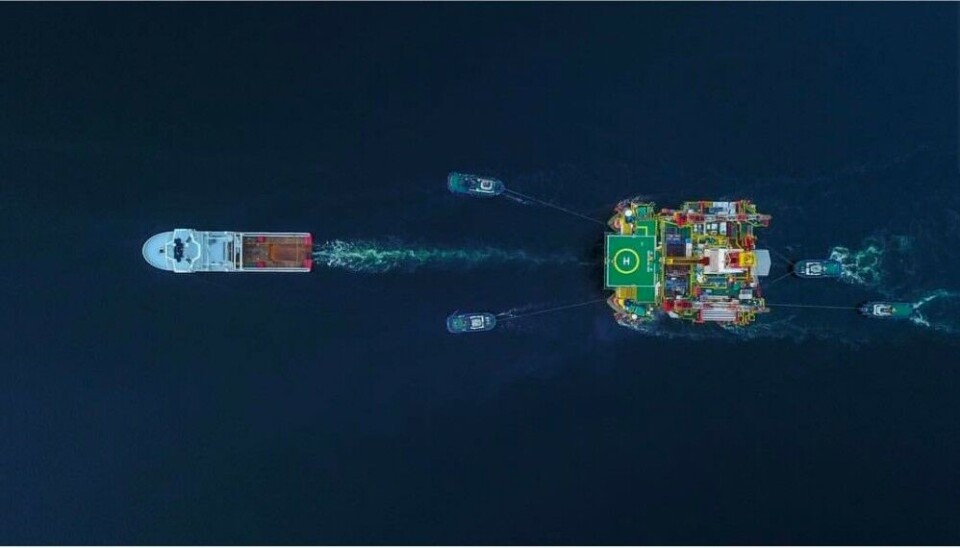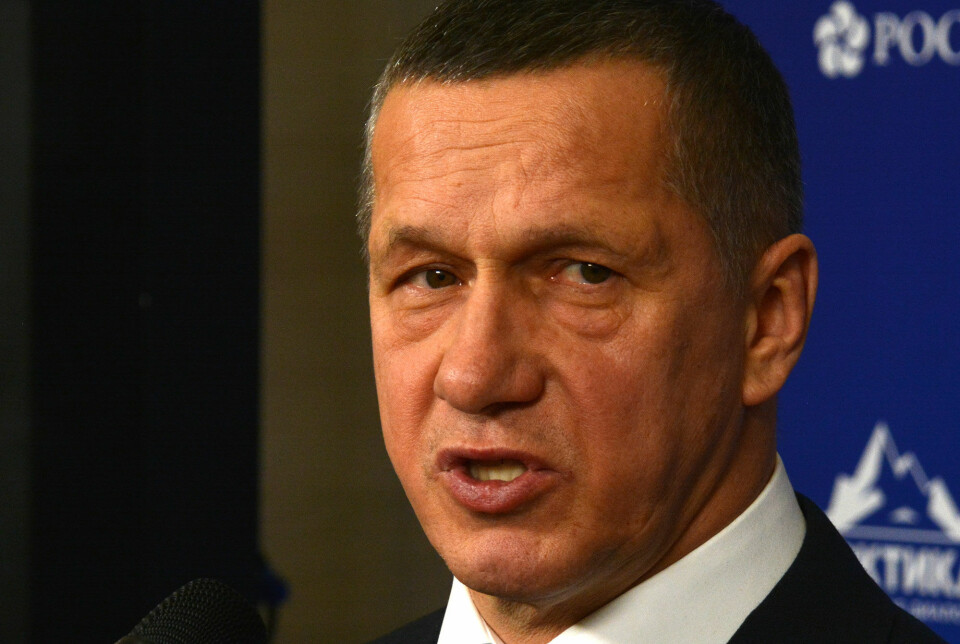
It’s time for Russia to reshape plans for Arctic shelf, says Deputy Premier
The current state monopoly on shelf development must end and foreign companies given access, Yuri Trutnev argues.
p.p1 {margin: 0.0px 0.0px 20.0px 0.0px; line-height: 18.6px; font: 12.0px Helvetica; color: #262c35; -webkit-text-stroke: #262c35; background-color: #ffffff}p.p2 {margin: 0.0px 0.0px 0.0px 0.0px; font: 11.0px ‘Helvetica Neue’; color: #262c35; -webkit-text-stroke: #262c35}p.p3 {margin: 0.0px 0.0px 0.0px 0.0px; font: 11.0px ‘Helvetica Neue’; color: #000000; -webkit-text-stroke: #262c35; min-height: 12.0px}span.s1 {font-kerning: none}span.s2 {font-kerning: none; color: #000000}
The deputy prime minister with responsibilities for far eastern and Arctic developments has written a letter to President Vladimir Putin where he calls for a major reshuffle in the country’s Arctic shelf program.
According to Trutnev, the current state of affairs on the shelf «does not promote economic development in the country.»

A copy of the letter has been obtained by newspaper RBC.
Foreigners should be given access to offshore licenses and Norway’s model for shelf development should be adopted, the high-ranking government representative maintains. He argues that the current Russian monopoly situation on the shelf hampers development in the region.
The state companies should be reserved a 30 percent stake on the shelf, while the remaining 70 percent can be shared by Russian private and foreign companies, he says.
Since 2012, only state companies Gazprom and Rosneft have been allowed to obtain licenses to Arctic offshore fields. Since then, both companies have acquired a big number of licenses.
According to Trutnev, federal authorities have granted the two state companies a total of 69 licenses since 2012 and requested 80 exploration wells drilled in course of 20 years. However, by summer 2019 only five wells have been drilled, he explains.
If Gazprom and Rosneft are to keep its many license, they should by year 2022 sign an agreement with government that commits them to invest in shelf development, the deputy prime minster says in his letter to Putin.
If not, they will have to hand their licenses back to the state.
According to RBC, Trutnev also proposes that federal authorities invests 100 billion rubles in the construction of an ice-class drilling rig that can be leased to the oil companies. It would pay itself back in a 11-year period, he argues.
None of the two companies are happy with the letter of the deputy prime minister, and, reportedly, Rosneft has responded with its own letter to the President.
A source close to the company says to RBC that the Arctic remains a highly important strategic region and that a liberalization of the shelf would be «dangerous». Furthermore, the person argues, the state request to drill 86 wells in twenty years is unreasonable considering the sanctions imposed by western countries.

The two companies also argue that they comply with the terms of the license agreements. According to Rosneft, the company now controls as many as 55 offshore licenses, of which 19 are in the western part of the Arctic and 9 in east Arctic waters. By 1 July this year, exploration is in the making on as many as 45 of them, the company says on its website.
Also Gazprom underlines that it meets the requirements of the offshore license agreements. The company has over the last two three years drilled several wells in the Kara Sea. In 2018, three rigs - the Chinese «Nan Hai Ba Hao» and Russia’s «Arkticheskaya» and «Amazon» engaged in license areas Rusanovskoye, Nyarmeyskoye and Severo-Obskoye respectively.
This year, the «Nan Hai Ba Hao» is drilling at the Leningradskoye, while the «Arkticheskaya» is engaged at the nearby Skuratovskoye field.
Gazprom earlier this year confirmed that some of its latest biggest discoveries have been made in the Kara Sea. The drilling at the Rusanvoskoye in 2018 revealed 390,2 billion cubic meters of gas. The Kara Sea discoveries made by the «Nan Hai Ba Hao» over the last three yeas now amount to more than more than 1,2 trillion cubic meters of natural gas.
















